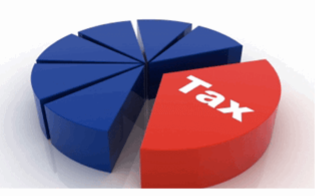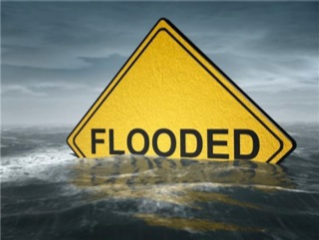News
TaxTalk Newsletter Oct / Nov 15

Cash deals aren’t tax-free income
- The government uses taxpayers' money to pay for services we all need, such as healthcare, education, environmental protection and recreation.
While most people pay the right amount of tax, IRD knows some people think they don't have to pay tax if they're paid in cash. By not declaring all their income, people who do un-taxed "cashies" are taking unfair advantage of honest businesses and cheating those who pay the right amount of tax.
It's okay to do jobs for cash or for your mates as long as you record them and declare the income when you're filing your annual tax return. You should:
- record every job, no matter how big or small, and provide your customers with receipts
- bank all cash you receive - don't use it to make small purchases
- encourage your customers to make a direct credit or internet banking payment rather than paying in cash
- charge GST if you're registered for it. You must be registered for GST when your annual turnover exceeds $60,000
- declare all your income when you file your tax return.
If you're already paying tax on all your income, there's nothing more you need to do. If you're not doing the right thing IRD can help you get back on track.
If you've left some income off your tax return it's best to let IRD know now, rather than wait for IRD to find out some other way. By making a full voluntary disclosure you may benefit by:
- not being prosecuted
- having your shortfall penalty reduced by up to 100%.
Choosing not to tell IRD may lead to:
- late payment penalties
- shortfall penalties
- prosecution
If you need help with correcting your tax returns, please contact us..
Know someone who's not playing fair?
The entire community is affected by businesses cheating on their taxes. You can play your part if you have concerns about those getting an unfair advantage. If you know someone who's doing undeclared cash jobs you can let IRD know anonymously.
If you do this by using the form available please provide as much details as possible.
New Factsheets released
IRD are constantly working to improve the way they communicate with their customers. The best way to do this is to ensure that not only is the information correct but it's in plain language so it's easy to understand. IRD have also taken a fresh look at the layout of the new guides.
New factsheets out now
Two other factsheets are aimed at entertainers and those who hire them. Tax information for bands and entertainers (IR1035) explains what income is taxable and who is responsible for paying the tax. Payments made to entertainers - your tax responsibility (IR1036) is for anyone who pays an entertainer and explains how to manage tax on these payments. Both factsheets have useful flowcharts to quickly work out the tax requirements.
Boarders, flatmates and tenants - tax responsibilities (IR1037) contains information previously in our Rental income guide (IR264). It covers what income from these services is taxable and how to treat it.
In the building industry, there are three types of construction workers:
- employees
- labour-only contractors
- independent contractors.
The tax rules are different for each. Working in the building industry (IR1026) factsheet will help customers understand these differences. It also explains the tax rules that apply in each case.
New look for Debt options guide
Debt options (IR582) guide is one of IRD’s most popular publications and why it was selected for a plain language makeover. Starting from scratch, IRD asked members of the public to review existing content. Then IRD came up with a fresh, easy-to-read guide on how to deal with Inland Revenue debt and how to avoid getting into debt again.
Updated Rental income (IR264) guide
The section on the tax treatment of income from boarders, flatmates and tenants has been removed and is now in a new factsheet (see the IR1037 above). The IRD have added a new section on travel expenses when inspecting, repairing or maintaining a rental property. And the depreciation section has been updated to bring it into line with current legislation and policy.
If you hold copies or the old guide (prior to July 2015) please replace them with the new version.
To download any of these new factsheets go to www.ird.govt.nz and type in the factsheet code (e.g. IR264) in the search box and press enter.
 Withholding tax on benefits under share purchase agreements
Withholding tax on benefits under share purchase agreements
If you provide benefits to your employees under a share purchase agreement then the amendments proposed in the Taxation (Transformation: First Phase Simplification and Other Measures) bill will impact your payroll system if enacted.
At present, the benefits provided to employees under share purchase agreements are employment income but are not subject to tax at source under the PAYE rules or FBT rules. The employee receiving the benefit must file an income tax return to account for its value themselves.
After public consultation on the issue, the proposed law changes in the Bill treat the amount of the benefit as an extra pay and allow employers to choose to withhold PAYE on the value. Employers who choose not to withhold also have an obligation to disclose the value received by the employee via the employer monthly schedule (EMS).
These changes aim to improve the collection of income tax on the benefits that employees receive under share purchase agreements and reduce tax compliance costs faced by employees.
For advice about how this would affect your payroll system, talk to your tax advisor, payroll software provider or your payroll intermediary if you use these services.
 Lump sums from foreign
Lump sums from foreign
Superannuation
If you have withdrawn or transferred a lump sum from a foreign superannuation scheme, you might need to pay income tax on that amount. The amount of tax depends on when the lump sum was withdrawn and how you have accounted for the income from the scheme in the past.
If you have transferred/withdrew the lump sum between 1 January 2000 and 31 March 2014, and you didn't meet the tax rules at the time, you have two options. The simple low-compliance-cost option is to include 15% of your lump sum withdrawal in your income tax return for the year ending 31 March 2014 or 31 March 2015.
If you have transferred/withdrew the lump sum after 31 March 2014 then you need to calculate your tax liability using either of two different formulas. Contact us for more details.
Use of money interest
Many customers wonder why UOMI continues to be calculated after the principal is paid without also paying the interest. This is because payments are first applied to interest, then the principal. If the debit balance is over $100, interest continues to be added until the amount is paid in full.
Interest is calculated on a daily basis on the amount of overpaid or underpaid tax. It doesn't compound and isn't included when calculating penalties. Interest on tax underpayments is charged on the tax owing, which includes accumulated penalties and shortfall penalties.
If possible don't wait for the full period you may have been allowed to pay, especially for reassessments. It saves you money if you pay debits, including Interest, within 30 days of the date of statements of account or notices of assessment issued. This is because the interest calculated between the date of the notice or statement and the date of payment in full within the 30-day period is cancelled.
 Relief for taxpayers
Relief for taxpayers
affected by the floods in
Lower North Island
IRD have the ability to waive the late filing and late payment penalties, and interest to help taxpayers who cannot file and pay on time as a consequence of the June floods in the lower North Island and the West Coast.
Income equalisation
IRD have activated the income equalisation discretion for farmers. Under this discretion farmers materially affected by the flooding can make early withdrawals from the income equalisation scheme in their 2015-16 tax year.
Because of how early it is in the 2014-2015 tax return filing season, and noting that most farmers have late balance dates, very few, if any will have filed their 2014–15 tax returns. As IRD have not applied a general discretion for this, farmers will have to apply individually for the discretion if they want to make late deposits from the 2014–15 year.
Once you’ve have dealt with your immediate situation and you find you need help with your tax affairs, contact your tax advisor, or call IRD on 0800 473 566 sooner rather than later so IRD can help.
 Changes to Home Start
Changes to Home Start
There have been some changes to HomeStart:
- The HomeStart grant has been doubled for first home buyers purchasing a new home – overall maximum $20,000.
- House price caps are now 550,000 for Auckland; $450,000 for high-cost areas such as Wellington and Christchurch and some others; and $350,000 for the rest of the country.
- Welcome Home Loans (underwritten by Housing New Zealand) require 10% deposit. House price caps are the same as above. Withdrawals from KiwiSaver can be used for an initial deposit.
Important: This is not advice. Clients should not act solely on the basis of the material contained in the Tax Talk Newsletter. Items herein are general comments only and do not constitute nor convey advice per se. Changes in legislation may occur quickly. We therefore recommend that our formal advice be sought before acting in any of the areas. The Tax Talk Newsletter is issued as a helpful guide to our clients and for their private information. Therefore it should be regarded as confidential and should not be made available to any person without our prior approval.




